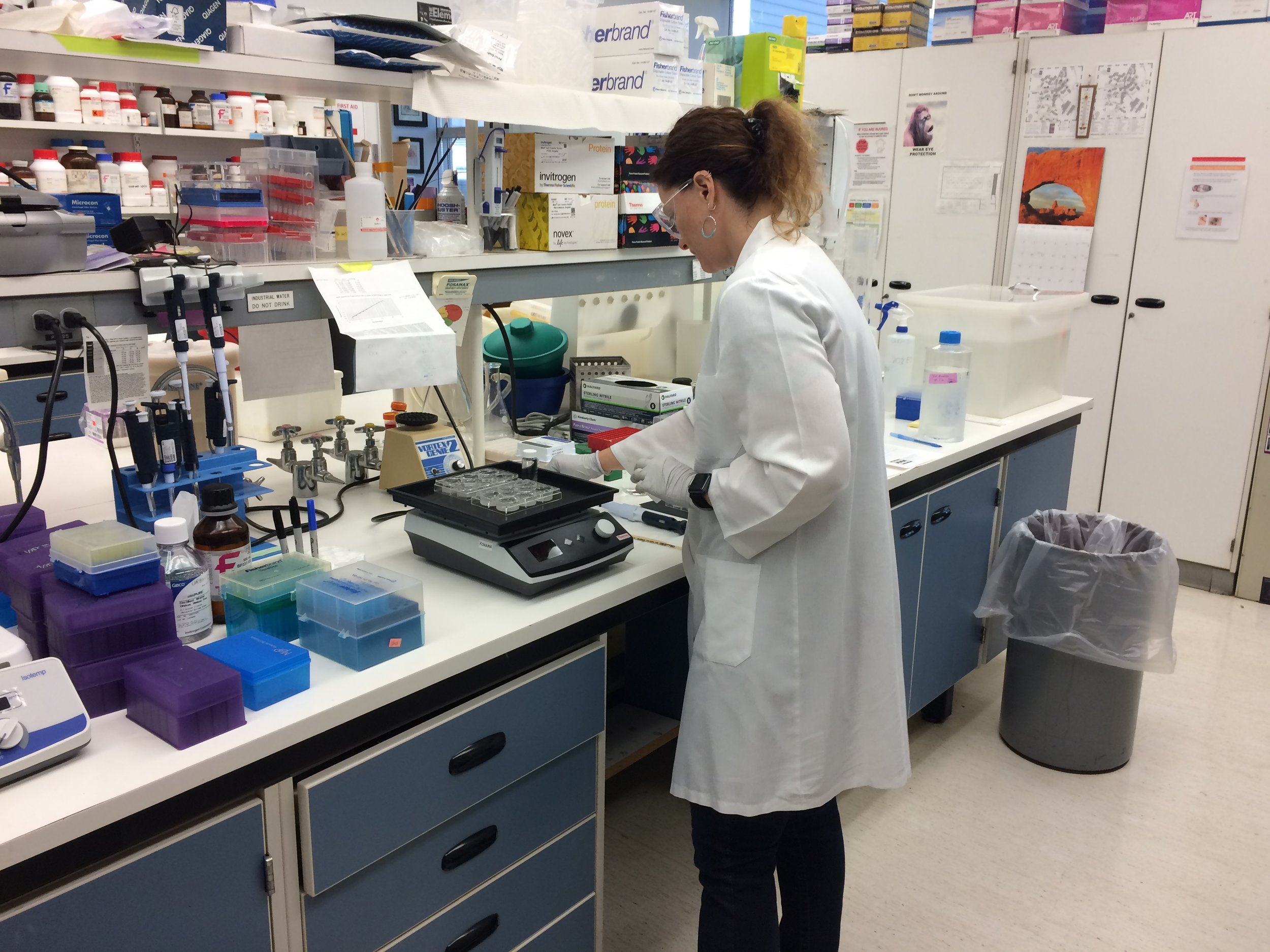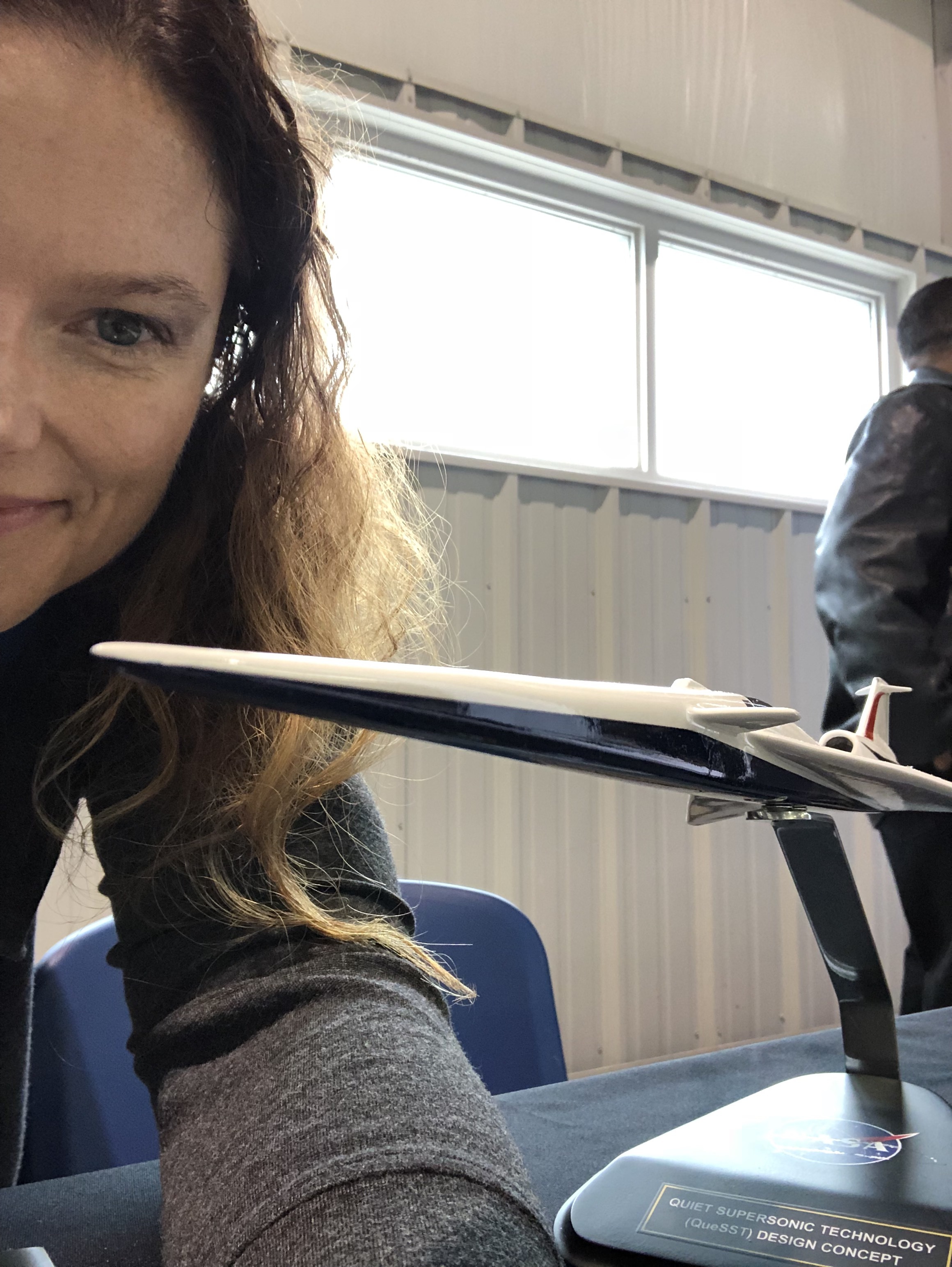Teaching Life
Ms. Stagner is excited to start a new chapter as the STEM Coordinator/teacher at Templeton Academy in Washington, DC as of August 2019.
Prior to 2019, Ms. Stagner taught at Madison High School for 10 years while also serving as co-department head since 2016. Courses she taught at Madison are Forensic Science, Chemistry, Biology, College Reading, Fundamentals of Physics and Chemistry, and Sustainable Agriculture. Here's an article that appeared in PPS's Pulse Magazine from June 2018 about the Forensic Science class that Ms. Stagner developed at Madison.
Professionally, Ms. Stagner is passionate about encouraging students to think critically and to connect science to their everyday lives. A particular focus is a commitment to increasing the number of women and minority students who pursue science as a career choice. She also is devoted to social and environmental justice. Throughout her time at PPS, she served on commitments devoted to climate justice, fair grading practices, curriculum development, science sequence recommendation, and equity in schools.
Education
Ms. Stagner has a Bachelor's of Science degree from Michigan State University in Fisheries & Wildlife Management with a minor in Environmental Studies. She also has two Masters Degrees from Portland State University: a Masters of Education, and a Masters of Science in Teaching.
Awards & Accomplishments
I am honored to be selected as a Climate Change Research Initiative (CCRI) associate researcher/educator in 2024 at NASA through the Early Career Researcher Program at Goddard Institute for Space Studies and the Office of STEM Engagement. I will be working on research and educational outreach around the SMAP satellite at NASA for the next 11 months. This project examines soil moisture and the validation of the satellite data and models that can be used to predict floods, agricultural yields, droughts, and more.
I have been chosen as an Ecological Project International (EPI) teacher fellow in 2024. In February of 2025, I will travel to Baja, Mexico to engage in marine mammal research and learn more about the educational opportunities that EPI can offer students interested in a career in science.
In 2023, I was a finalist for the Presidential Award of Excellent in Math and Science Teaching (PAEMST) in Washingon, DC. The winners will be celebrated, awarded $10.000, and be part of an amazing cohort of educators. I should find out soon (?)
I was awarded an Earthwatch Project Kindle Fellowship in 2023. Unfortunately, I came down with COVID the week of my trip to Maine, but I was grandfathered in for 2024, and went to Costa Rica with an amazing group of educators. I took students on a trip to Costa Rica the following year to study the impacts of climate change on caterpillars and parasitoid wasps.
In January 2019, the Murdock Foundation invited me to give one of three inaugural “Jack Talks” at their annual conference in San Diego. I spoke about the lessons I learned as an Einstein Fellow at NASA and my experiences as a teacher leader at the Saturday keynote.
In December of 2018, Ms. Stagner earned her National Board Certification in Adolescent/Young Adult Chemistry. This was a several year process, and she is grateful to be recognized!
In May of 2018, Ms. Stagner was awarded an Albert Einstein Distinguished Educator Fellowship for the 2018-2019 school year. She served her fellowship at NASA in their Aeronautics Research Mission Directorate (ARMD) in Washington, DC, from September 2018 to July 2019. While at NASA, Ms. Stagner developed curriculum and assisted with public outreach and STEM engagement efforts. For more information about my time as an Einstein Fellow, check out my blog.
In 2017, Ms. Stagner was named as a Murdock Partners in Science recipient. This opportunity allows her to conduct two years of summer research at Oregon Health and Science University, Division of Neuroscience, under the guidance of Dr. Henryk Urbanski. The partnership includes a sizable grant for classroom materials, professional development, and outreach opportunities. Ms. Stagner's research focuses on the effect of caloric restriction on the brains of rhesus macaque monkeys. This research will help science understand how dietary strategies such as caloric restriction can mitigate age-related declines in brain function. In January 2018, Ms. Stagner traveled to San Diego to present the results of the first year of her research through a formal poster session. Here's an article that appeared in PPS's Pulse Magazine about her experience.
From 2016-2018, Ms. Stagner was a member of the Oregon Science Teacher's Association Board, serving as "Member-at-large" from District 1, which includes the Portland Metropolitan Area.
Much of this started when I was selected to be a Robert Noyce Teacher Scholarship recipient at Portland State University back in 2006. The Noyce Scholars program is designed to support promising STEM teachers and encourage them to work in high-needs schools and is funded by the National Science Foundation and AAAS. I reconnected with the program while living in DC, and was recently featured as one of their distinguished alumni on their website.
















